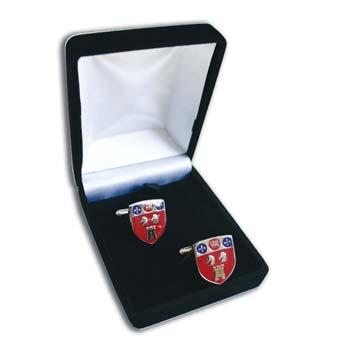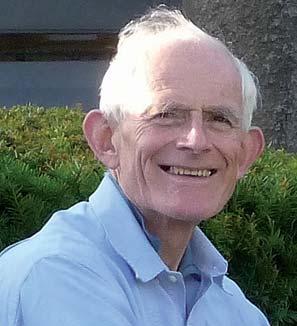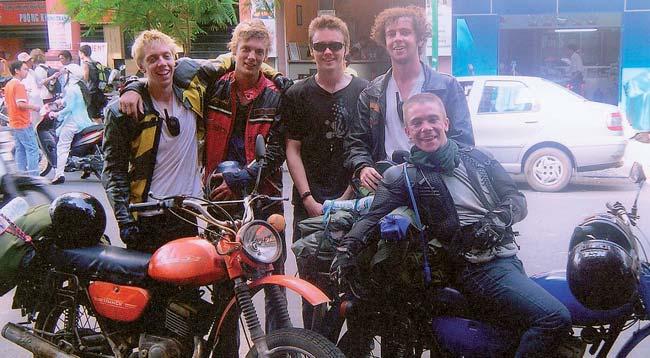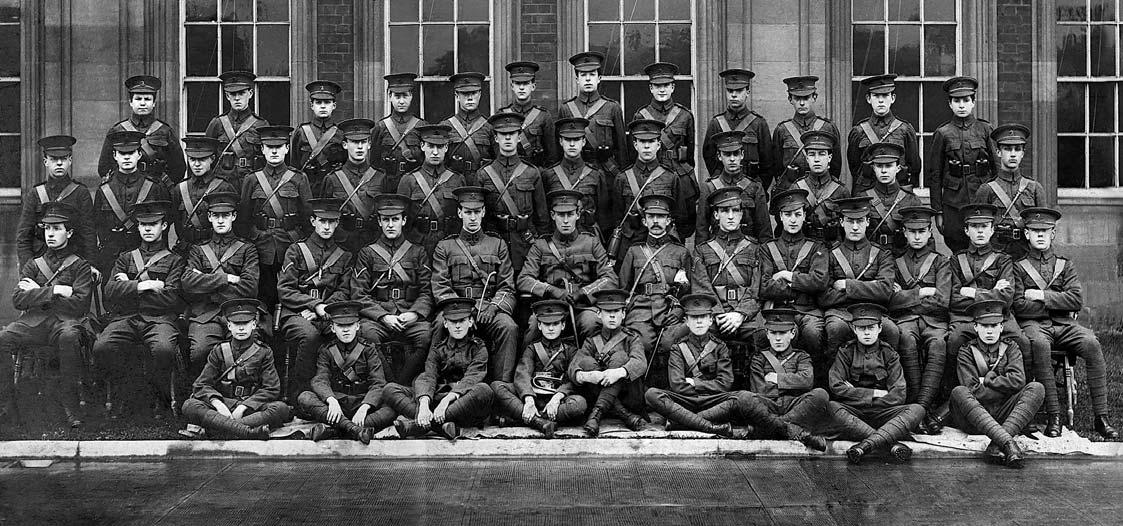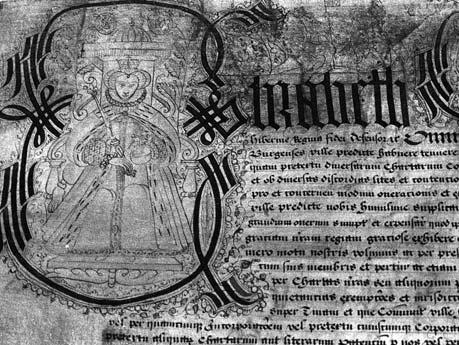13
Obituaries
Obituaries are there of rigour on the intellectual and the physical side? His role as Head of Geography needs particular mention: it would be hard to explain the deep-rooted attachment of the RGS to this multi-faceted discipline without reference to his input. It’s true that he wore his intellectualism lightly, but one quickly learned that his poised posture on every vexed question was not just instinctive but thought out.
Colin Nichols RGS Master 1953-1986 Arrived at RGS 1953, appointed Second Master 1967. Retired 1986. Died October 2010, aged 84. It may look bad if the author of this tribute to Colin Nichols starts with a word about himself, but it will soon bring me to the very essence of what I want to say. I have to admit that, since my retirement from the RGS Headship in 1994, I have so buried myself in a ‘new life’ in France that my former friends and colleagues in Newcastle may simply assume (wrongly but understandably) that I have ‘lost interest’ in those 22 years of my life. Worse, I have been remiss in failing to react to the death of colleagues for whom I had the highest respect, and whose families have good reason to think badly of me. I hope and believe however that they’ll understand why the news of the death of Colin Nichols immediately punctured my posture of detachment. Distant though I was, I just had to hear from former colleagues who attended his funeral, and (for once) I lost no time in getting a message to Betty about what her husband had meant to me. My mind had meanwhile been flushed with strangely vivid images of those days in 1972 (precisely half my lifetime ago) when I first entered the orbit of the RGS. If this was a ‘hinge’ in the social history of the school, any detailed examination of it will show up the central role (yes, central, not subsidiary) which Colin Nichols as Second Master played out with such finesse. If there was continuity amidst a welter of change, Colin was the core of it, such was his gift for reading situations and reacting wisely to them. For situations I think I mean Headmasters! My predecessor Bill Haden was probably well equipped to handle the intergenerational battles of the 1960s, being himself a hardened battler, ready to take a hard line with ‘troublesome youth’ and equally unafraid of alienating those of his own staff whom he regarded as ‘feeble’. They were turbulent years at the RGS, and Colin had fulfilled his role of ‘interpreting’ HM to staff (and vice versa) with discretion aplomb –
before deploying the same interpersonal skills in the less explosive context of the 1970s and of a new HM who was a classic case of being chosen for being different. The pattern of joint-management which developed between us was not unlike that of the ancient Roman consuls – two of them, each with a power to block the other’s initiatives. Rarely did I proceed down paths which did not seem sensible to Colin, and (to say the least) this required courage and in some cases a readiness to wonder if I had it wrong! There were tensions of all sorts to be eased (the Sixth Form to be allowed more adult freedoms, the ‘fliers’ stream to be declared no longer fit for purpose, managerial responsibilities to be spread more widely across the staff), and Colin was for me the perfect ally in bringing such things about, often being one jump ahead in what needed to be done. It’s true that he regarded ‘principles’ with worldly cynicism, but his pragmatism was laced with admirable priorities which he would occasionally spell out – for example that ‘ease of administration’ (for which he had a gift) should never be an end in itself. All his dealings at every level had the human touch. It says much for Colin that he switched with seemingly effortless ease from being my ‘rival’ for the Headmastership to being a stalwart ally and advisor. You could say without exaggeration that the RGS got two for the price of one. To earn respect within the RGS community it’s as well to have a stake in both the academic and the sporting or extra-curricular world. Colin’s dual credentials had been forged in the fires of Cambridge geography and rowing – and what better guarantees
Colin’s emotional equilibrium, which could never be faulted, depended in part on his commitment to ‘life beyond school’. My first lesson from him on this was before I ever started: to my question whether I could perhaps meet my future colleagues on the day before term began, the answer was a courteous yes, but a hint that I should not make a habit of it! His own use of time during the school day was organised in such a disciplined and systematic way that I’m sure he reckoned on taking home with him the absolute minimum not only of the paper-work but of the ‘worries’ which went with it. His home was a haven and a fortress, manned by that remarkable duo of Deputy Heads who had a way of converting the chores into pleasures (Betty as proud of Colin’s cooking as of her own!), and whose habit of many a weekend was to drive in the comfort of their cherished Volvo to their equally cherished rural retreat in Forest Head. A privileged circle of good friends shared these unpretentious pleasures with them, and will have been amongst those who found no surprise in the ailing Colin’s insistence on getting over there ‘just once more’. It did prove to be the last time. I hope it will be clear from these unashamedly personal remarks what I owed to Colin Nichols – and, more important, what the school owed to this formative figure in its twentieth century history. Old Novocastrians who read this will see at once what a mass of appreciative detail I have left out. For them to fill it in! Alister Cox RGS Headmaster 1972-1994


